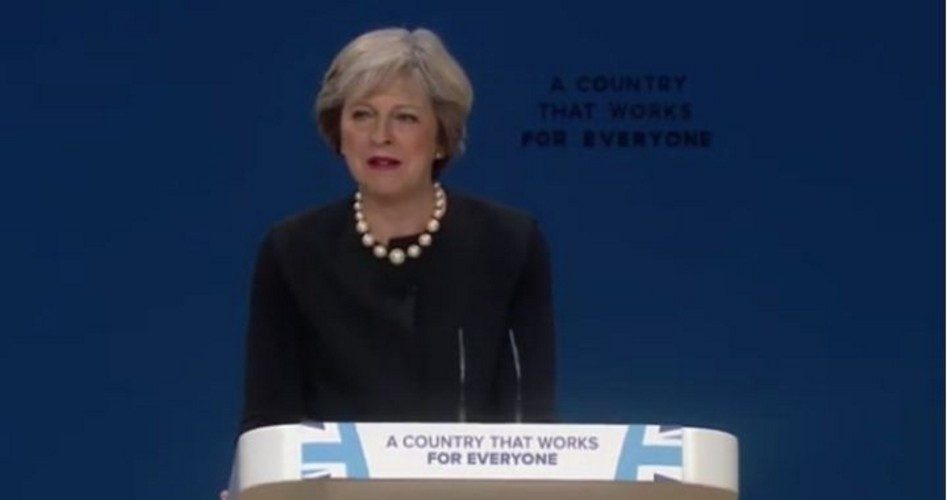
In a speech on Sunday to her British Conservative Party’s conference, Prime Minister Theresa May made it sound as if she had been a supporter of Brexit all along:
[After Brexit, the United Kingdom will be] a fully-independent country [no longer under the] jurisdiction of the European Court of Justice.… [Brexit] was a vote for Britain to stand tall, to believe in ourselves, to forge an ambitious and optimistic new role in the world….
Brexit should make us think about our role in the wider world. It should make us think of Global Britain, a country with the self-confidence and the freedom to look beyond the continent of Europe and to the economic and diplomatic opportunities of the wider world.
Because we know that the referendum [to leave the European Union] was not a vote to turn in ourselves, to cut ourselves off from the world.
Accordingly, she announced that her government was close to inking trade deals with eight countries outside of the EU, including Canada, China, India, Mexico, South Korea, and Singapore. This was a signal that Britain would be able to get along very nicely without the European Union if the EU refused to play nice and let her nation leave.
She also gave the EU leaders notice that her government was prepared to do a “hard Brexit” unless they allowed her country to determine its own policies on integration:
We have voted to leave the European Union and become a fully independent, sovereign country. We will do what independent sovereign countries to: we will decide for ourselves how we control immigration. And we will be free to pass our own laws….
We are not leaving the EU today to give up control of immigration again and we are not leaving only to return to the jurisdiction of the European Court of Justice.
And then she dropped the bomb, adding, “As ever with international talks, it will be a negotiation. It will require some give and take.” Instead of beginning the withdrawal process in January, it won’t happen until March when she said she would then “trigger” Article 50, the escape clause built into the Act of Parliament that Britain passed in 1972. That agreement bound it to the European Economic Community (EEC), which has since morphed deliberately into the European (political) Union.
This is just as was suspected by TNA senior editor William Jasper, writing in The New American in August:
Clearly, Prime Minister May is following the feet-dragging prescription. As a story from the (U.K.’s) Sunday Times (globalist, anti-Brexit, pro-EU) reported: “Britain could remain in the EU until late 2019, almost a year later than predicted.… Theresa May has been expected to enact Article 50 in January (2017), setting in train the formal two years of negotiations before Brexit. Despite great political pressure to stick to that (January 2017) timetable, she may be forced to delay because her new Brexit and international trade agreements will not be ready.”
Whether this delay of two months signals simple recognition of reality, or a plan to stall, dither, and drag out negotiations, won’t be known until March. Another delay then would confirm the prime minister’s intention to stretch out the process interminably, giving insiders time to change the minds of enough British citizens and then call for another referendum on the matter.
A graduate of an Ivy League school and a former investment advisor, Bob is a regular contributor to The New American magazine and blogs frequently at LightFromTheRight.com, primarily on economics and politics. He can be reached at [email protected].
Related article:
Is New Brit PM Theresa May Sabotaging Brexit With Endless Delays?


